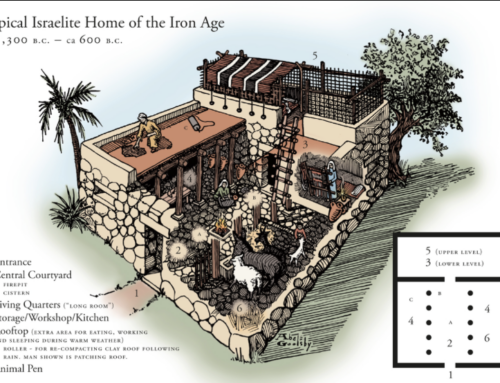There was a tempest in a teacup over on Twitter this morning over the proper color of liturgical vestments. A Catholic priest of a more traditional hue posted a picture of a priest celebrating an All Souls Mass wearing black vestments. Another priest rather self righteously said they wore white vestments to celebrate the resurrection.
This reminded me of the Protestant observation that the crosses in their churches do not bear a corpus because they “believe in the Resurrection.” The stupidity of this opinion is mind boggling. The protestants I knew growing up loved singing The Old Rugged Cross and There is a Fountain Filled With Blood, so they clearly did (in their own way) venerate the cross and value the Lord’s death on Good Friday, and if they valued Good Friday it was ludicrous to imply that Catholics (because they have crucifixes) do not value Easter or believe in the Resurrection. Only when I became a Catholic did I begin to really plunge into the mystery of Lent, Holy Week and Easter–complete with the vigil, the New Fire and the whole Catholic celebration of Easter.
But there is a deeper problem here beneath Protestant-Catholic squabbles or priests sniping at one another over the color of vestments. The priest who wore white and wanted to celebrate the resurrection stands for a modern trend to deny the darker aspects of the faith and therefore the darker aspects of life.
Earlier this week I blogged saying I would be writing about death and dying during this month of November, and I have noticed that in recent years the traditional funeral is disappearing. Many Protestant churches around here don’t do funerals anymore. They offer “memorial services” or “celebrations of the life of so and so”. Typically the body will be cremated and the urn may be present at the service, but more often not. All the unpleasant aspects of death are swept under the carpet leaving only a happy celebration of the person’s life. This sentimental, sweet approach might seem like a kindly thing to do, but it is not pastorally or psychologically appropriate. People need to face what has happened. Denial is one of the stages of bereavement and if the whole system is enabling that denial by offering a sweet, happy memorial service, then the bereaved person will find it harder to move through the bereavement to closure.
This saccharine approach to death has deeper theological implications. Underlying the sappy happy memorial service is the assumption that of course the departed is now “with the angels” or even “has become an angel.” The assumption is that the departed is in “a better place” in other words, they have gone straight to heaven. All of this is the popular, sentimental form of universalism–the false idea that everyone will be saved and go to heaven.
I am not suggesting therefore that funerals and ministry to the bereaved should wallow in the darkness of death, decay and loss. However, I am suggesting that a proper, dignified and realistic approach is taken. We recommend a funeral mass whenever possible–with black vestments, a somber atmosphere, requiem music and a solemn, serious and dignified mourning. A loved one has died. We will not see them again in this life. Their mortal remains should be present at the funeral then interred with respect, dignity and purpose.
When a proper funeral and internment do not take place, in my experience, the bereaved have a harder time moving through their grief to a resolution. This parallels the Christian gospel. Resurrection is true and wonderful, but Easter follows Good Friday. There is no resurrection without going through the dark valley of death first.
Finally, a shallow, improper and sentimental approach to death and dying betrays the Christian gospel. It treats our human mortality as an afterthought–an unfortunate mistake–a kind of embarrassing burp in the otherwise Disney-esque unreal world we wish to create. A serious, solemn and dignified approach to death and dying carries within itself an affirmation of the full gospel–cross and crown, death and resurrection, sin and forgiveness.
To make my point, some time ago I took the funeral of a man who died too young–leaving a wife and family. The church was full–many of the people non-Catholics. We honored the man with a fully Catholic funeral Mass–altar servers, the pie Jesu from Faure’s Requiem beautiful hymns, incense–the works.
Afterward so many people shook my hand and made comments like, “Wow. You Catholic sure know how to do a funeral!” or simpler words of thanks with plenty of tears and smiles through the tears. That was an evangelistic moment. Their hearts were touched and their grief was ministered to because they had touched reality.






I resonate with this. Brings back memories of a friend’s wife who passed from late-stage melanoma. They tied the knot in the hospital and were married for a few days. Tragic really. Both attend a Protestant megachurch that operates with a mix of dispensationalist, semi-Calvinistic, charismatic, and prosperity theology.
Went to the wake to offer some moral support to my friend, and vividly remembered leaving with an embittered taste in my mouth (metaphorically speaking). Singing praise & worship songs, and declaring the deceased is immediately welcomed into Heaven, just didn’t sit right with me. It reeks of presumptuousness and sentimental toxic positivity.
It gave me the impression that so long as one is Christian (at least by profession or on paper), that makes sickness and death somehow okay and permissible.
Yes. My Mother died this past year and there were some who called her funeral a Celebration of her life. That startled me and disturbed me. It was a time to grieve, not celebrate her leaving. I was not at all ready to celebrate anything, I missed her presence. She was not really dead for me, I couldnt actually grasp that she was gone. We needed time and comfort from others to stand by and help love us and acknowledge our loss. My priest and church family assisted us in that. We have now moved on to celebrating her life often in our memories of her.
I went to a baptist funeral this past year for a neighbor who lost his wife. It was incredibly uplifting as they gave less than 5 minutes about her and the next hour and a half to praising God and desiring for all to receive and know Jesus as savior and Lord. Almost was confused as to if it was a funeral or revival!
I’ve been to funerals like that! Remember the revival type service/sermon is almost like a liturgy for some Baptists. That’s all they have on offer.